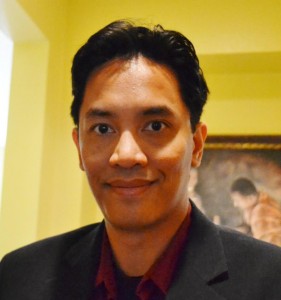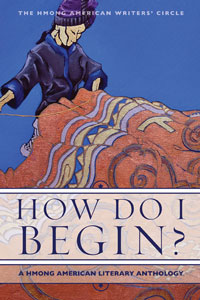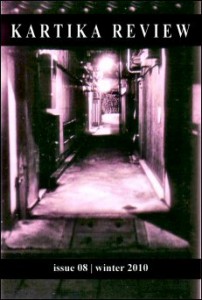
An award-winning Laotian American writer, Bryan Thao Worra works actively to support Laotian, Hmong and Southeast Asian American artists. His writing is recognized by the Loft Literary Center, the Minnesota State Arts Board and the National Endowment for the Arts. He has served as a consultant to the Minnesota History Center, the Council on Asian Pacific Minnesotans and the Minnesota Humanities Commission. He is also an active professional member of the Horror Writer Association and the Science Fiction Poetry Association, and represented Laos as a Cultural Olympian during the Poetry Parnassus of the London 2012 Summer Games. You can visit him online at http://thaoworra.blogspot.com.
* * *
LR: How did you discover poetry and what led you to poetry as a vocation?
BTW:
It wasn’t quite Pablo Neruda’s storied hymn
Of how poetry arrived in search of him. No.
I began at an age some consider very young,
Just a scribble of a soul undrawn to poetry
Until my senior year in Saline High.
One night, like a stroke of spring lightning,
I began to comprehend what verse could do,
What straight narrative could not,
For knot lives of flux best writ with pencil.
My first poem was for a pretty girl in Michigan, a mask.
Something about Batman’s Joker quoting Pagliacci.
Probing unexpected intersections,
I didn’t end up with the girl, naturally.
Still, it was an early lesson.
LR: Your work has achieved much critical success, with an NEA grant among your many honors, but your path to publication wasn’t traditional, in that you were neither an English major nor an MFA student, and your two full-length collections, On the Other Side of the Eye and Barrow, were published by Sam’s Dot Publishing, a science fiction and fantasy publisher, rather than a poetry press. What do you think your non-traditional poetic pedigree has lent to your perspective as a poet?
BTW:
It’s liberating.
I read what I want to read.
I write what I want to write.
That’s a great freedom not everyone has.
I’m humbled to have that opportunity in life.
As a Lao American writer, without naming names,
I didn’t always, sometimes still don’t, get invited to
“Join in any reindeer games.”
Over time, that gave me strength.
“Get my work out there anyway. Any way.”
I push myself to be rigorous, but not hidebound
To one leathery school or dogma.
My writing doesn’t have to be
Safe or conventional as a faithful hound by some sad fire.
I fret not for tenure tracks or professional posts to be happy,
Nor grand accolades or book deals the envy of fading fool Midas.
One dragon summer, I was a cultural Olympian,
The sole writer representing all Lao
During the London games.
Between that and other laurels of yore,
I’m obliged to think
“I’m doing something right, surely.”
But that and a cup of coffee will get you a cup of coffee.

